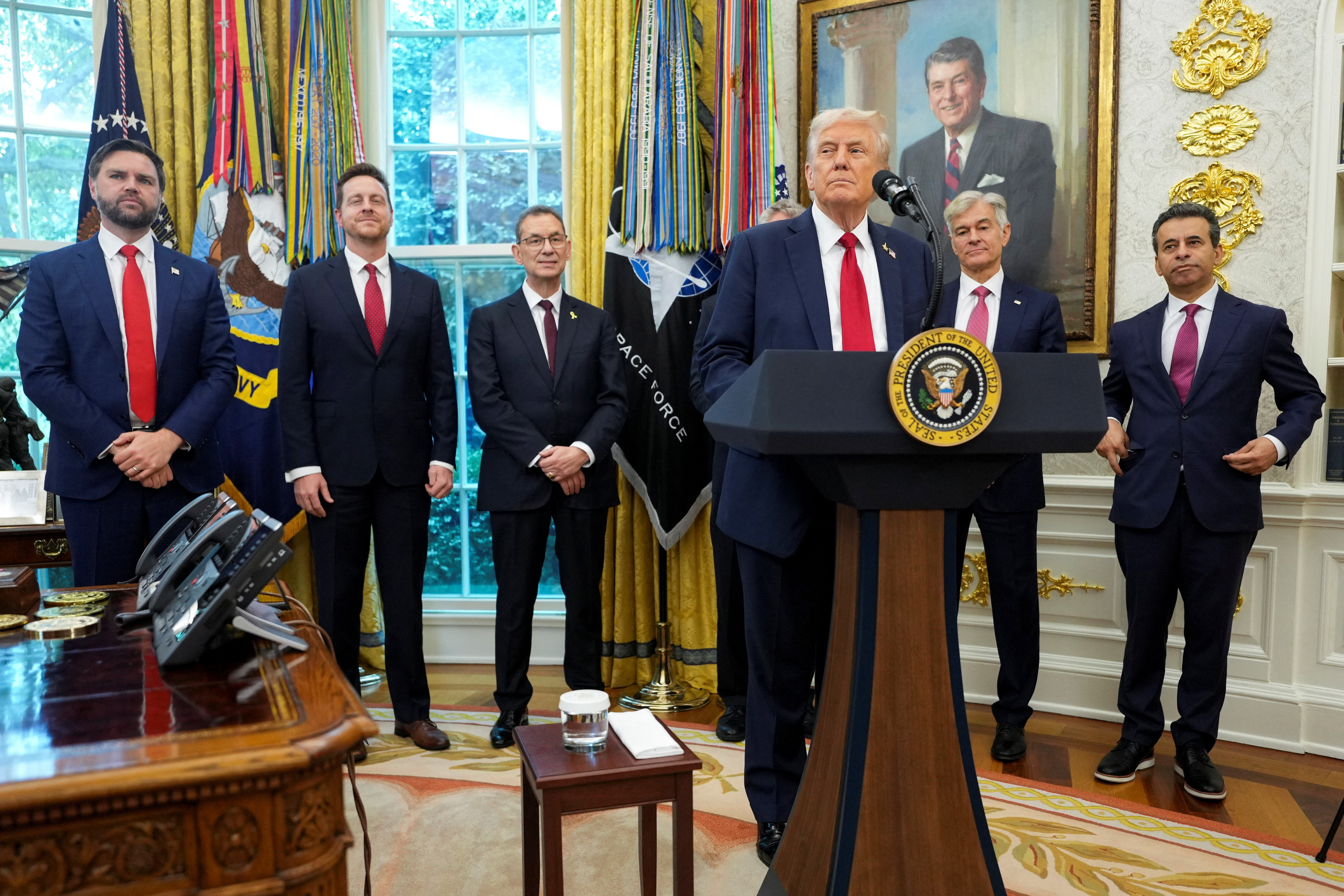President Donald Trump on Tuesday said Pfizer will cut the price of all prescription drugs in the Medicaid program for low-income Americans and sell new prescription drugs at a “most favored nation” price in exchange for tariff relief.
Trump also said he expects other drugmakers to follow suit.
US patients currently pay by far the most for prescription medicines, often nearly three times more than in other developed nations, and Trump has been pressuring drugmakers to lower their prices to what patients pay elsewhere.
“The United States is done subsidizing the healthcare of the rest of the world,” Trump said, speaking at an event in the Oval Office accompanied by Pfizer CEO Albert Bourla, Health Secretary Robert F Kennedy Jr and others.
Pfizer is the first drug company to announce a deal. Trump sent letters to 17 leading drug companies in July telling them to slash drug prices to match those paid overseas – a policy the president has called most favored nation pricing. He asked them to respond with binding commitments by September 29.
The White House is also planning to unveil a direct-to-consumer website for Americans to buy drugs, called TrumpRx. Pfizer will launch sales of some of its drugs directly to consumers through that website.
PRICES HAVE BEEN RISING
According to a poster on display at the event, Pfizer will make rheumatoid arthritis drug Xeljanz, migraine treatment Zavzpret, dermatitis drug Eucrisa and post-menopausal osteoporosis medication Duavee available at the website discounted between 40 per cent and 85 per cent.
Shares of Pfizer rose 5 per cent to $25.05.
The US has been engaged in one-on-one talks with the companies, Health Secretary Robert F Kennedy Jr said at a cabinet meeting last month, adding that Commerce Secretary Howard Lutnick was using the threat of tariffs on the industry for additional leverage.
The launch prices of drugs in the United States have been rising significantly in recent years. Many new medications enter the market at annual prices in the hundreds of thousands of dollars, leading to questions about whether patient benefits are worth the cost.
A Reuters analysis found that US prices for newly-launched pharmaceuticals more than doubled last year to a median of $370,000 compared to $180,000 in 2021.
More than 70 million people are covered by Medicaid, the state and federal government program for low-income people. Another 65 million people are enrolled in the government’s Medicare program, which covers people aged 65 and older or who have disabilities and is not included in Tuesday’s announcement.
Bourla also announced a $70 billion push on research and development and domestic manufacturing.
“We are ready to unleash our investment portfolio in this country. And the president graciously gave us a three years grace period that we will not be subject to the 232 tariffs, as long as, of course, we move the products here,” Bourla said.
On September 25, Trump announced it would impose a 100 per cent tariff on imports of branded or patented pharmaceutical products from October 1, unless a pharmaceutical company is building a manufacturing plant in the US. The US has been doing a national security investigation, or 232 probe, to determine tariffs for pharmaceuticals.






Click here to change your cookie preferences